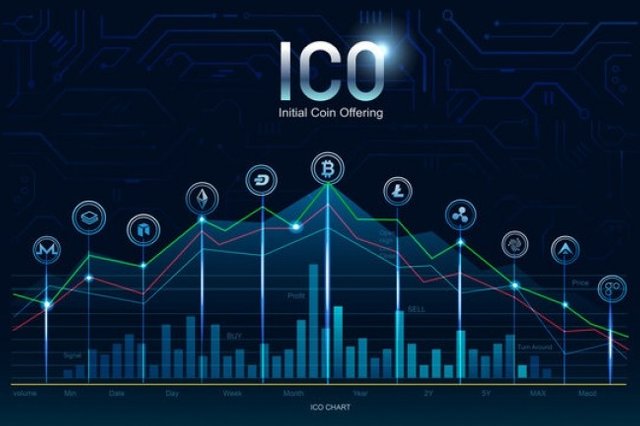How Do ICO Development Solutions Support Multi-Currency Acceptance?

Initial Coin Offerings (ICOs) have revolutionized the way startups and companies raise capital, offering a decentralized and efficient alternative to traditional fundraising methods. One of the critical features that enhance the appeal and functionality of ICOs is the ability to support multi-currency acceptance. This capability allows investors to participate using a variety of cryptocurrencies, thereby broadening the investor base and increasing the potential for successful fundraising. In this extended blog post, we will explore how ICO development solutions support multi-currency acceptance, examining the technological frameworks, benefits, challenges, and future trends associated with this feature.
The Importance of Multi-Currency Acceptance in ICOs
1. Expanding the Investor Base: Multi-currency acceptance allows ICOs to attract a diverse group of investors who hold different types of cryptocurrencies. By accepting multiple currencies, ICO projects can tap into various crypto communities and increase participation rates, leading to a more successful fundraising campaign.
2. Enhancing Flexibility and Convenience: Investors often hold a portfolio of different cryptocurrencies. Multi-currency acceptance provides the flexibility and convenience for investors to contribute using their preferred digital assets, making it easier for them to participate in the ICO.
3. Reducing Dependency on Single Cryptocurrency Volatility: Cryptocurrency markets are highly volatile. By accepting multiple cryptocurrencies, ICOs can mitigate the risk associated with the volatility of a single cryptocurrency. This approach can help in stabilizing the value of the funds raised during the ICO.
Technological Frameworks Supporting Multi-Currency Acceptance
Implementing multi-currency acceptance in ICOs requires robust technological solutions that can handle transactions in different cryptocurrencies seamlessly. Here are the key components involved:
1. Smart Contracts: Smart contracts are self-executing contracts with the terms of the agreement directly written into code. They play a crucial role in ICOs by automating the process of token distribution and ensuring that transactions are secure and transparent. To support multi-currency acceptance, smart contracts must be designed to recognize and process various cryptocurrencies.
2. Multi-Currency Wallet Integration: ICO development solutions integrate multi-currency wallets that can hold and manage different types of cryptocurrencies. These wallets ensure that contributions made in different digital assets are securely stored and accurately recorded.
3. Blockchain Interoperability: Interoperability between different blockchain networks is essential for supporting multi-currency acceptance. ICO development solutions leverage cross-chain technologies to enable seamless interaction between various blockchain platforms, allowing transactions in different cryptocurrencies to be processed efficiently.
4. Payment Gateways: Specialized payment gateways are integrated into ICO platforms to facilitate the acceptance and conversion of multiple cryptocurrencies. These gateways ensure that transactions are processed quickly and accurately, providing a smooth experience for investors.
Benefits of Multi-Currency Acceptance in ICOs
1. Increased Participation and Fundraising Potential: By accepting multiple cryptocurrencies, ICOs can attract a larger pool of investors, leading to higher participation rates and increased fundraising potential. This inclusivity is particularly beneficial for projects seeking to raise significant capital.
2. Improved Investor Confidence: Multi-currency acceptance demonstrates a project's technical sophistication and commitment to accommodating diverse investor preferences. This can enhance investor confidence and trust in the project, contributing to its overall success.
3. Diversified Risk Management: Accepting multiple cryptocurrencies helps in diversifying the risk associated with cryptocurrency volatility. This diversification can provide a more stable financial foundation for the project, ensuring that it can weather market fluctuations more effectively.
4. Enhanced Market Reach: ICOs that support multi-currency acceptance can appeal to a global audience, transcending geographical boundaries and reaching investors from different regions. This global reach can significantly boost the visibility and credibility of the project.
Challenges in Implementing Multi-Currency Acceptance
Despite its advantages, implementing multi-currency acceptance in ICOs is not without challenges. Here are some of the key obstacles that need to be addressed:
1. Technical Complexity: Designing and deploying smart contracts that can handle multiple cryptocurrencies is technically complex. Ensuring that these contracts are secure, efficient, and interoperable with different blockchain networks requires advanced technical expertise.
2. Security Concerns: Managing multiple cryptocurrencies increases the complexity of the security infrastructure. ICO development solutions must implement robust security measures to protect against hacking, fraud, and other cyber threats.
3. Regulatory Compliance: Different cryptocurrencies are subject to varying regulatory frameworks across jurisdictions. ICOs must navigate these regulations carefully to ensure compliance, which can be a challenging and time-consuming process.
4. Transaction Fees and Processing Times: Different cryptocurrencies have varying transaction fees and processing times. ICO platforms need to manage these differences effectively to provide a consistent and efficient experience for investors.
Future Trends in Multi-Currency Acceptance for ICOs
As the cryptocurrency landscape continues to evolve, several trends are likely to shape the future of multi-currency acceptance in ICOs:
1. Increased Adoption of Cross-Chain Solutions: Cross-chain solutions and blockchain interoperability will become more prevalent, enabling seamless interaction between different blockchain networks. This will facilitate more efficient multi-currency acceptance in ICOs.
2. Integration of Stablecoins: Stablecoins, which are cryptocurrencies pegged to stable assets like fiat currencies, will play a more significant role in ICOs. Their stable value can help mitigate the volatility risk associated with other cryptocurrencies, providing a more stable fundraising environment.
3. Advanced Security Protocols: As security threats continue to evolve, ICO development solutions will incorporate more advanced security protocols, such as multi-signature wallets and decentralized identity verification, to protect multi-currency transactions.
4. Regulatory Clarity: As governments and regulatory bodies provide clearer guidelines on cryptocurrency transactions, ICOs will be better equipped to navigate compliance requirements, making multi-currency acceptance more streamlined and legally sound.
Conclusion
Multi-currency acceptance is a vital feature that enhances the functionality, flexibility, and appeal of ICOs. By enabling contributions in various cryptocurrencies, ICOs can attract a broader investor base, mitigate risk, and improve overall project success. However, implementing this feature requires sophisticated technological solutions, robust security measures, and careful navigation of regulatory landscapes. As the cryptocurrency ecosystem continues to mature, we can expect to see more advanced and efficient solutions for multi-currency acceptance, further solidifying the role of ICOs in the future of fundraising.